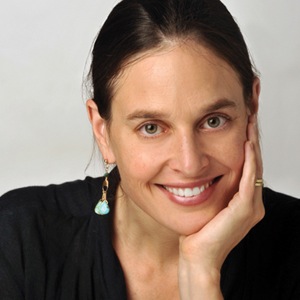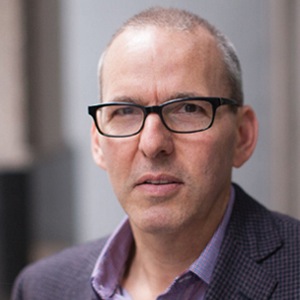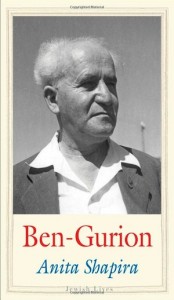A screenshot from the trailer for Avi Does the Holy Land. The vlog will appeal to some more than others.
Good satire depends not only on distancing the viewer from the object of ridicule, but on making them identify with it, if only just a little. For North American Jews who’ve grown up with affection towards Israel, a new video blog (or vlog) does just that.
Avi Does the Holy Land is a sendup of sex-drenched Zionism, a vlog that purports to tackle various hot-button aspects of Israel – “the most contentious state in the Middle East!” in the words of Avi, a “Canadian Jewess” who “went on a Birthright trip and fell in love with Israel.” (Haaretz has since revealed that Avi is Aviva Zimmerman, originally from Calgary, and now an Israel-based filmmaker.)
Through a website, a YouTube channel and a Facebook page, Avi covers such topics as how to beat terrorism, whether Palestinians are really oppressed or not, what to pack for Birthright, and the accusation, by Israel’s critics, of pinkwashing.
And, while Avi is a cartoonish, lipsticked character who perpetually seems perplexed by the sincerity of her interviewees, many of us will no doubt identify with at least a sliver of her carefree naiveté.
“Did I just give a blow job to a guy named Dudu?” she muses in one segment.
In my kibbutz-loving period of the early 1990s, it wasn’t a guy with the unfortunate name Dudu I fawned over, but another whose name in translation meant “ploughed field.” Giggling over his agricultural moniker while in ulpan class, my pals and I idealized his Zionist credentials.
In another scene, Avi wears a pink T-shirt emblazoned with an Uzi, the kind that pepper tourist shops throughout Jerusalem.
While I never wore clothing depicting an actual gun, I did rummage through the kibbutz lost and found one day and select a worn, burgundy T-shirt from a paratrooper, the kind Israeli soldiers design when they finish their basic training. (This one, from 1984, was extremely tame next to the tasteless ones appearing in more recent years – ones that promote rape and anti-Palestinian violence.) I later found the owner – a different strapping kibbutznik whose name meant cedar tree – but never did return it. Why would I? It had the perfect mix of soft fibres and Jewish power pedigree. All the better to wear while painting metal beams and bantering with the workers over never-ending tea-and-toast breaks in the kibbutz welding shop.
Avi Does the Holy Land’s web episode “Pride vs. Pinkwashing” is the most cutting in terms of political messaging. It involves alternating scenes of Avi doing what she “does best” – “dancing on a truck” at Tel Aviv Pride – and interviewing Rami Younis, a Palestinian writer and activist, over charges of Israeli pinkwashing. Calling Israel’s critics “belly-aching leftist sh–heads,” Avi muses over Younis being “hashtag superserious,” and finally suggests to him that perhaps if he drapes himself in a rainbow flag, Israel will treat him better.
It’s probably fair to say that I move in circles that are highly critical of the occupation and that, while I’ve taken a nuanced position on pinkwashing, still take the claim seriously. But I, too, have enjoyed a Tel Aviv Pride beach party, trying to order a vodka cocktail from a shirtless bartender and, in my distraction, confusing the Hebrew word for cranberries with that for paratroopers and enjoying my private little malapropism – a symbol of Diaspora idealization of Israel – for weeks after.
So is Avi “other”? Or is Avi “us”? For those who are distressed by the occupation and feel a gradual distancing from Israel through decades of government intransigence and illiberal moves intended to silence and intimidate human rights activists, probably a bit of both. And for those who don’t have a single critical word in their lexicon for the Jewish state, I’m really not sure. But I’d love to see their reaction.
Mira Sucharov is an associate professor of political science at Carleton University. She is a columnist for Canadian Jewish News and contributes to Haaretz and the Jewish Daily Forward, among other publications. This article was originally published on forward.com.





